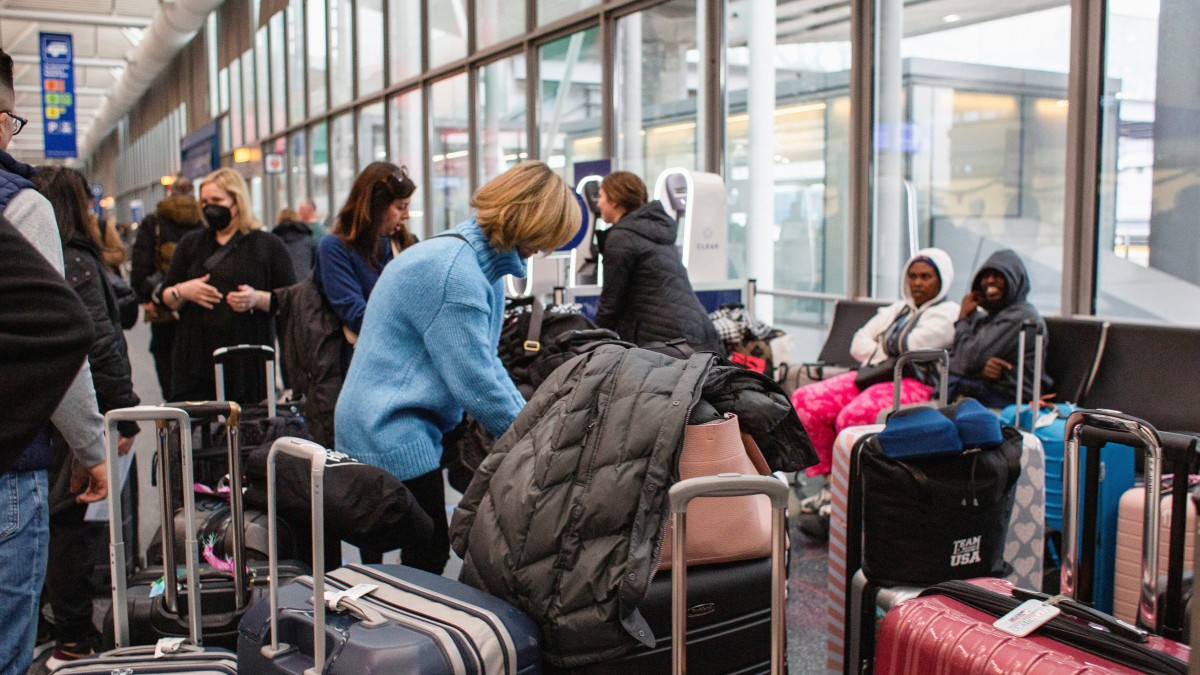Travelling to a country with fake or counterfeit items can be risky.
The customs officials may either run a scissor through fake clothes, shoes or other items, or toss them in the bin at the port.
All of this is true, especially in some countries like the United States.
Here’s why.
The rules
US Customs and Border Protection (CPB) has increased its efforts to prevent the entry of counterfeit goods into the nation.
Several Indian tourists and students who travelled to the US in recent months had their fake luxury goods confiscated at the airport by US customs officers.
A person is only permitted to own one sort of counterfeit goods (such as a shirt, purse, or pair of shoes) for personal use and not for sale, according to CPB regulations.
It is illegal to possess quantities more than this limit.
Instances of goods seizure
According to a Times of India report, a 43-year-old teacher from Jamshedpur, Jharkhand, flew to Texas to see her son.
She brought with her eight shirts, four sets of trousers, several pairs of socks and a pair of shoes.
“At the port of entry, officials checked my bags and bombarded me with questions about where I was travelling from, who the goods were for, if I smuggled them, etc. Though I tried explaining to them that it was all for my son, they insisted that I could not take them as they were all counterfeit goods (copies of big brands) which I wasn’t aware of. Since they threatened me with criminal charges, I had no choice but to let them seize everything immediately," TOI quoted her as saying.
According to her, the officials tore each item before throwing it away.
The teacher claimed, “I lost goods worth at least Rs 30,000,” and suggested that the relevant authorities post an alert about these rules.
Impact Shorts
More ShortsAn Indian student in California, age 27, was in a similar situation.
“How do we know this (rule) if it is not prominently mentioned in the dos and don’ts guide that gives travellers a checklist of what can be carried and what can’t,” the student said, as quoted by the report.
“It is common in India for people to sell and buy fakes of big brands. But until it happened to me, I had no idea that carrying them is such a serious offence.”
At the airport, customs officers threw his three sets of shoes, trousers and ten shirts.
Another student recounted how her more than Rs 50,000 worth of luggage was ruined.
Not even the bag in which she was carrying the garments escaped the damage.
“I literally had to carry the leftover luggage in plastic bags,” the student told the newspaper.
Millions of counterfeit goods seized
According to the report, CPB officials said the monitoring increased after 23 million counterfeit items were seized in 19,724 shipments in 2023.
The representative told TOI this is a violation of intellectual property rights (IPR), and the value would have been $2.7 billion if the products had been real or sold under false names.
The official went on to say that these counterfeit items threaten public safety, national security, and the stability of the economy.
He noted that purchasing counterfeit goods frequently funds illegal activities including forced labour and human trafficking, and that importing them into the US could result in civil or criminal repercussions.
Similar rules in other countries
It is against the law to purchase, sell, or possess counterfeit goods in Italy.
A law known as the “Legge Finanziaria” was aims at safeguarding both consumers and the Italian fashion industry.
If found in possession of counterfeit designer goods, tourists may face fines of up to Rs 10.62 lakh.
The authorities are keeping a close eye on tourists.
France’s French Intellectual Property Code has strong prohibitions against the sale of counterfeit goods.
If found in possession of counterfeit products, tourists may face fines of up to Rs 6.37 lakh.
Germany, Spain and Switzerland also prohibit the distribution of counterfeit designer goods.
Australia has strict rules for anyone who transports counterfeit goods. In addition to the possibility of losing your items, the Australian Border Force website states that you could be prosecuted and have to pay hefty fines.
With inputs from agencies
)